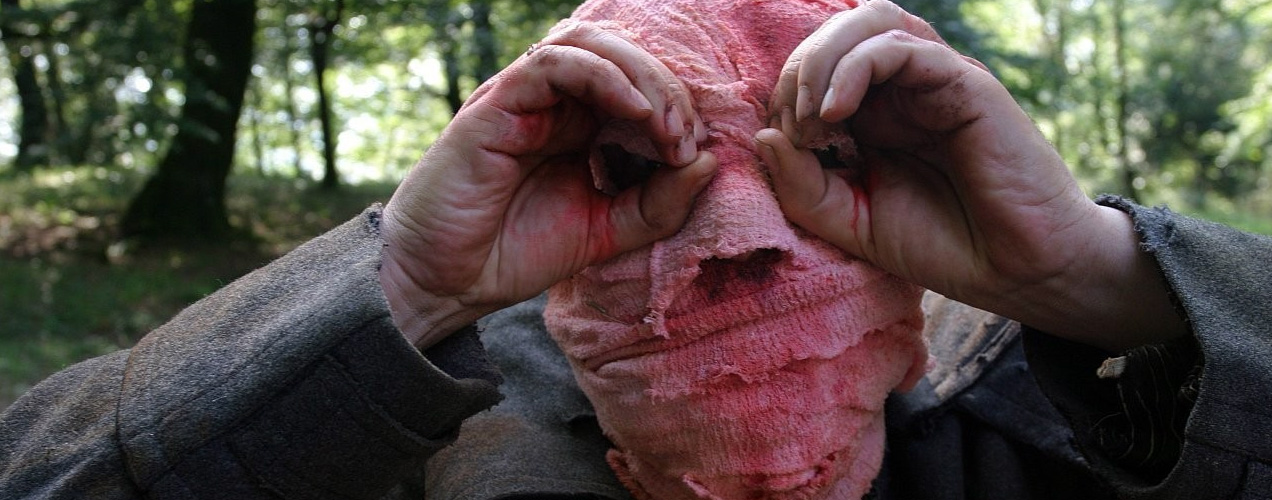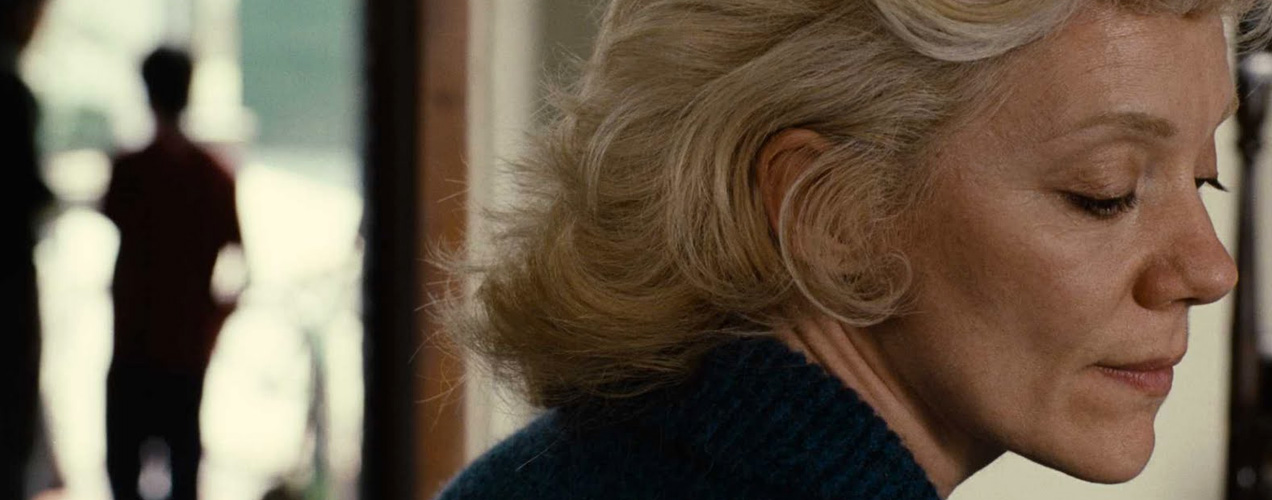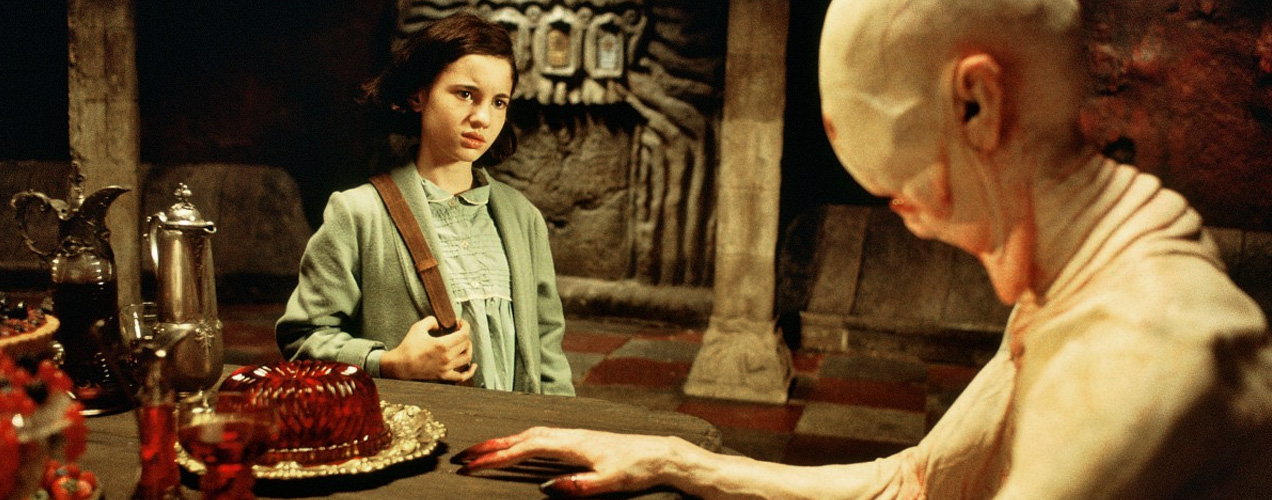2009 / Adrian Biniez > Garnering quite a bit of love at the Berlinale this year, Biniez’s debut is definitely one of the more light-hearted approaches to the loner’s guide to stalking and potentially getting the girl. Thematically, you expect dark twists in these films, because, let’s face it, that’s what we’re used to, and sometimes that’s the kind of tragedy that satiates our yearning for heartache. But while the approach here is definitely fresher, I can’t help justify it as a feature-length film. It didn’t click for me as I would have expected, even though I liked most of the ideas present. The problem may be that I didn’t need sixty minutes of character development because you could tell in the first ten minutes what kind of a guy we were dealing with. This is also, in many ways, the absolute antithesis to Observe and Report, and while it had potential, it lacked any sort of real hook for further appreciation.
Category Archives: Latin America/Spain

Timecrimes
2007 / Nacho Vigalondo > I wasn’t a big fan of Primer, so I should have assumed I wouldn’t like this as well. Time travel for the sake of time travel seems to be a fairly unappealing topic to me. It should have a greater purpose, or at least, that the technique should be used to propel a bigger story that surrounds it. Nonetheless, this was a nice diversion, even if there’s a loophole that no one’s been able to explain to me. And since it looks like David Cronenberg is coming at us with a remake, I’ll have another chance to revisit my theories at a later time.

The Headless Woman
2008 / Lucrecia Martel > It’s tough to fault The Headless Woman on a fundamental level because it’s effective in what it really sets out to do: To examine a certain hazy psychological state of denial that many of us experience when confronted with an act of tragedy. Did I really do it? Was it my fault? These kinds of questions have historically been tackled by films in a very literal manner, but Martel’s effort is a considerably more subtle, quaint one that definitely should be acknowledged for its respectful approach. I found it lacking initially, but there’s an aftertaste to the experience that definitely haunts the mind. In fact, consider this a horror film in the most humane sense of the word.

Blindness
2008 / Fernando Meirelles > Maybe this is another one of those novels that’s unadaptable, because Meirelles’ vision is nothing short of torture filled with the kind of stereotyped, polarizing “lessons” that makes decent movies into ham-handed atrocities. Even as it is technically proficient, with fine acting performances from Julianne Moore and Japan’s Yoshino Kimura in her English-speaking debut, Blindness still comes off as a chore. The film’s simply not enjoyable, and when the credits roll, the satisfaction borne of the ending is significantly underwhelming considering the emotional upheavals experienced earlier.

Elite Squad
2007 / José Padilha > Regardless of all the nonsense about Elite Squad being a fascist film, I believe it genuinely tries to portray the morally ambiguous mindset of those who have been given the right to uphold peace in one of the worst ghettos in the world. Coming from the man who directed the eye-opening documentary Bus 174, there’s less reason to believe that Padilha would miss a chance to use the world’s stage (as it screened and won at this year’s Berlinale) to make a statement about his country. And his statement is simple: These people live hard lives, filled with decisions that never seem right. The gangsters (as portrayed beautifully on the other side by City of God) are never right. The BOPE, the special police of the favelas shown here, are never right. Then who is? The primary critique towards the film may be its caricatured portrayal of the wealthy, but even that could be argued as a medium via which to further polarize the law enforcement’s viewpoint. The resolution simply makes the battle versus good and evil more indistinct, and sadly, that sort of finality may be the only truth there is.

Volver
2006 / Pedro Almodovar > The worst thing about Almodovar most people can say is that he’s got his own unique style—so unique that once you’ve seen a decent amount of his films, you start taking him for granted. With Volver, for once, I’m not taking him for granted, but unfortunately, I’m also not letting him slip by so easily either. The film may be my least favorite in his oeuvre, and although it’s better than the barrage of films the industry puts out, it strains the soul in getting started and then challenges the mind in its plotting audacity.
Talk to Her, my favorite by the director, is gracious in its unfolding of events while Volver continuously hints before spilling the beans with simple dialogue. The twists are nearly predictable and fairly lazy—not what I expect from a masterful storyteller. Thankfully, he’s skilled enough to not make them the cornerstone of the film, but that doesn’t keep Volver’s center of gravity from shifting away ever so slightly so that the characters’ plights suddenly have less meaning, and we lose sight of some of the original dilemmas presented.

28 Weeks Later
2007 / Juan Carlos Fresnadillo > While it lacks the overt philosophical base of its predecessor, it overwhelmingly makes up for it in its incredible, adrenaline-based pacing. Guided by Boyle, Fresnadillo kicks it up a notch with a simpler plotline that becomes more hectic, flashing a surprise or two in the pan as time passes. Only after the film has ended does one realize that the plot was fairly thin, but that’s fine because the experience is bafflingly good. Add to it a maddening score and you’ve got one of the finest, if slightly more intelligent, popcorn films of the year (at least for those who aren’t so afraid of the dark).

Pan’s Labyrinth
2006 / Guillermo del Toro > The combination of fantasy and violence is something that’s always fascinated me because at the core of most fairy tales is a sense of naivety that is both wondrous and disagreeable. Emotions toward the latter comes outward mostly because we realize that stories are an escape, and that fairy tales don’t really happen without hard work (i.e., don’t exist). In film, we simply take a ride in our minds that comes hurling back to square one once the end credits roll.
With Pan’s Labyrinth, del Toro has given respect to the reality of time and space while still proceeding with his story of magic. The parallelism of good vs. evil along with the convex nature of Ofelia’s fate are the cornerstones of the film’s effectiveness. And since the idea of the happy ending is a modern one (and not one that’s fair or objective to the viewer’s emotions), I believe del Toro’s choice of conclusion judiciously stops short of manipulating the viewer and the viewer’s after-film hopes.
I’m neither perturbed nor surprised that The Lives of Others beat out Pan’s Labyrinth for the Oscar for Best Foreign Language Film. Both are beautifully crafted, but the latter’s taste in violence is not fit for all. That being said, only The Last King of Scotland and Memories of Matsuko compete with this as my personal favorite films of 2006.

Babel
2006 / Alejandro Gonzalez Inarritu > Babel is an unfortunate failure on many parts: Samuel L. Jackson’s now-infamous “Crash Benetton” comment at Cannes is one of the simplest yet most accurate depictions of this film. It reeks of a lazily contrived storyline, hellbent on deriving some sort of bigger meaning through mishaps and the obvious. Wherein Amores Perros tried to be an objective narrator, Babel instead chooses to manipulate the action to the conclusion it sees fit. Of the four storylines, only the Japanese one holds a sense of legitimacy: It’s raw, driven with emotion and mystery and is ultimately utilized as a stopgap measure on the remainder of the mess.
The film is beautiful: For Rodrigo Prieto’s cinematography, one would hope that he gets another Oscar nod after last year’s unsuccessful bid with Brokeback Mountain. Undoubtedly, the two best performances of the film come from Adriana Barraza as the Mexican caretaker of Pitt’s children, and Rinko Kikuchi’s deaf-mute Japanese schoolgirl in need of male attention. The latter, especially, is a bewildering success, even stealing the limelight from veteran Japanese actor Koji Yakusho’s subtle and masterful acting. This is also Gael Garcia Bernal’s weakest to date.
To say the least, this worries me about Inarritu. Sadly, he reminds me of the path Guy Ritchie has taken, in constantly repeating an initially successful technique until it’s so over the top that it just loses all credibility (see Revolver). It will be good to see him pair up with a writer other than Guillermo Arriaga, who seems to be quite busy on his own these days after his falling out with Inarritu over the authorship of 21 Grams. The potential herein was immense, with a global concept that, to my knowledge, has never been attempted. Too bad, then, that it falls into its own trap, filled with cliches and one-sided social commentary on what, exactly, we’re not even sure.

The Perfect Crime
2004 / Alex de la Iglesia > A tale of two halves: The Perfect Crime has an incredible build-up, with a freshly comic opening that commands your attention. “Who is this man?” “What is his story?” Alright, so he works at a department store, but hilarity ensues nevertheless. Then we have the gist of the film slowly revealed, and suddenly it dawns on us that the film has a modest chance of being original at this point. It tries, and it tries hard. But it fails. The lead-up to the finale is scattered and often boring, but one comes to understand, “This is definitely better than most films that try to do this. Not too shabby, not too shabby at all.”

